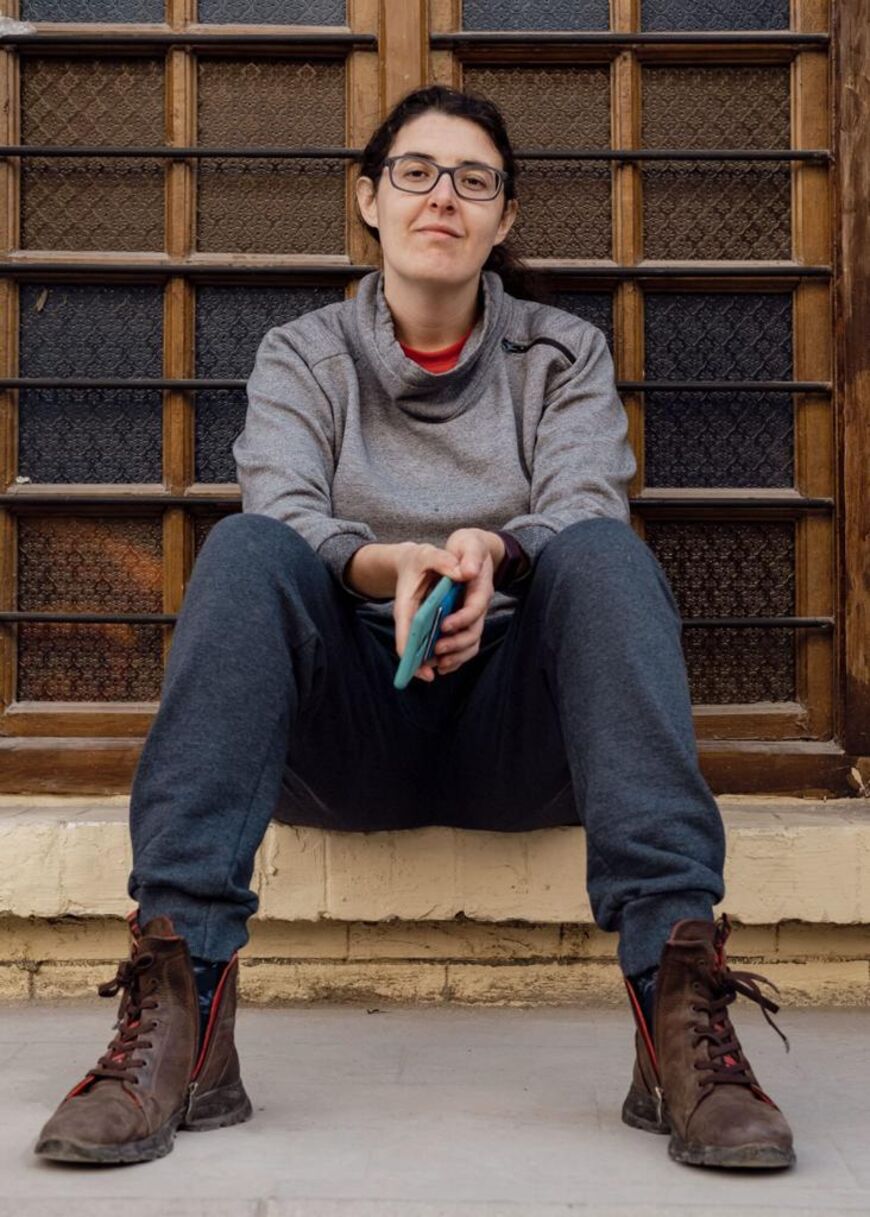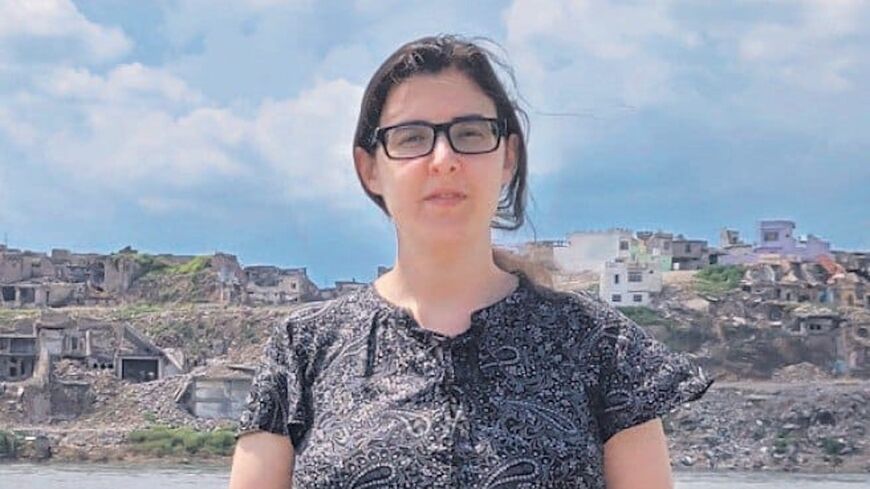Elizabeth Tsurkov, an Israeli-Russian researcher with deep knowledge of the Levant who was abducted on March 21 in the Iraqi capital Baghdad, is alive, the office of Israeli Prime Minister Benjamin Netanyahu confirmed Wednesday.
The statement said that Iraq was "responsible” for the safety of Tsurkov, who was finalizing research for her doctoral thesis on patronage networks for Princeton University, and that the "relevant authorities" in Israel are handling the case.
Tsurkov, 36, is being held by Kataib Hezbollah, the prime minister's statement noted. The group is a radical Iran-backed Shiite paramilitary group that is part of Iraq’s Popular Mobilization Units (PMU) formed to fight the Islamic State.
Earlier, regional officials speaking not for attribution had told Al-Monitor that the likely culprit was Asaib Ahl al-Haqq, another paramilitary group under the PMU.
Kataib Hezbollah was designated as a terrorist organization by the United States in 2009.
A dual Russian-Israeli citizen, Tsurkov performed military service in the Israel Defense Forces as is mandatory for all Israeli citizens residing in Israel and is not an “Israeli soldier,” as was claimed by one outlet. Tsurkov entered Iraq on her Russian passport as she has multiple times in the past.

The sources briefing Al-Monitor said that Netanyahu had been directly involved in seeking to secure Tsurkov’s release via Russia’s President Vladimir Putin. The sources said there was little doubt that the militia that kidnapped Tsurkov was acting in concert with Iran to use her as a bargaining chip for a prisoner swap or other concessions, a practice that is straight out of the playbook of Iranian-backed groups, notably Hezbollah in Lebanon.
Tsurkov’s mother, Irina, told Israeli public broadcaster Kan that she had not been contacted by any Israeli officials and that she had no knowledge of her daughter’s presence in Iraq. “I worry about her. I exchanged messages with her two months ago," she said.
Emma Tsurkov, Elizabeth’s younger sister, told Israeli news site Ynet that she knew her sister was in Baghdad, but had lost contact with Elizabeth in March.
"We were trying to figure out what was going on. I knew she is there because she was researching. We spoke quite a lot about her research and how she will write her doctorate. I knew she was doing the field work there. Her idea was to study political movements through ordinary people on the street. She conducted interviews with people to understand how they saw the world, that's what the doctorate is about," she told Ynet.
Emma said that despite the danger, Elizabeth thought this was the only way for her to do the research. "I talked to her several times about other ways it could be done to reduce the risk, but she decided this was her way."
Emma said Elizabeth had been in Baghdad for a few weeks when she lost contact with her. "I contacted everyone who I thought could help, but for now most of what we know comes from the media."
Tsurkov is the second Princeton doctoral student to have been taken hostage. In 2016, Xiyue Wang was sentenced to 10 years and imprisoned in Iran on spying charges. The Chinese-born US citizen was freed in 2019 as part of prisoner swap for Masoud Soleimani, an Iranian scientist arrested at a Chicago airport in 2018 and convicted of violating US trade sanctions.
Wang took aim at Princeton for continuing to allow its students to carry out research in countries where the risk of abduction exists and has taken legal action against the university for failing to take what he says was adequate action to prevent his own abduction. "My passport was confiscated 18 days before I was arrested and the university decided to not go public and discouraged me and my family from informing the authorities about what was happening,” he told Al-Monitor. As of the time of publication of this article Princeton had not commented on Tsurkov’s case.
Born to Jewish parents in Russia who emigrated to Israel, Tsurkov spent her early childhood on a kibbutz. A fierce and outspoken critic of Israeli brutality against Palestinians, Tsurkov rose to prominence through her granular and compassionate reporting on the Syrian uprising. Tsurkov is a fluent Arabic speaker and known for her wide network inside Syria that allowed her to chronicle the misery faced by Syrians in their daily lives in a way that few could.
Eight days prior to her abduction, Tsurkov underwent surgery for a back injury in a Baghdad hospital. Tsurkov had been interviewing adherents of Muqtada al-Sadr, the influential Shiite cleric and political leader who announced in April that he would suspend his movement for one year, citing “graft” among unnamed individuals inside his movement.
Rina Bassist contributed to this report.








